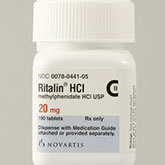
Omega Solutions
Behaviour Strategies and Training

Omega,
Sidsaph Hill,
Walkeringham,
DN10 4HP
Tel. 07540 707356 (Kevin) Email: khayes@omegasolutions.co.uk
07968 423795 (Julie) Email: sensory@omegasolutions.co.uk
Attention Deficit Hyperactivity Disorder (ADHD)
How big is the problem?
According to the NHS Website ADHD is the most common behavioural disorder in the UK, and yet no one really knows how many people we are talking about! Estimates suggest it affects around 2 - 5% of school-aged children and young people; that is anywhere between 166,00 and 455,000 people!!
It is not confined to children and some studies suggest that around 40% of children with ADHD go on to have difficulties as adults.

What does it look like?
Symptoms of Attention Deficit Hyperactivity Disorder (ADHD) include difficulty staying focused and paying attention, difficulty controlling behaviour, and hyperactivity (over-activity).
Childhood ADHD is more commonly diagnosed in boys than girls.
Girls with ADHD often have a form of the condition where the main symptoms relate to problems with attention rather than hyperactivity, which can cause less noticeable symptoms.
Interestingly is there a correlation between the dissociative nature of insecurely attached female babies and perceived inattention in girls? On the same lines insecurely attached male babies show hyper-arousal and are hyper-active as young boys. (read more)
Causes of ADHD
For possible causes of ADHD see this information on the NHS Website.
No-one really knows?
The extremely rapid rise in ADHD cannot reasonable be attributted to genetics - genes don't change that rapidly.
The brain function and structure differences are extremely well-documented in respect of infant stress, both pre- and ante-natal and resulting dysregulation.
Having looked through this information many times I keep coming back to the thought that all of the aspects can be readily explained when viewed in terms of Attachment Theory. The Other possible causes list would fit too.
Whilst no expert on this subject I have slowly come to a view, held by many people eminently more learned and experienced, that ADHD is a bit of a catch-all diagnosis grouping together a set of symptoms and 'medicalising' the problem.
ADHD symptoms clearly impact on the lives of young people, adults and families but is it a disease? If it is not then why treat it as one?

In the UK NHS prescriptions for methylphenidate drugs, including Ritalin, rose from 420,000 in 2007 to 657,000 in 2013 - a 50% increase.

Medication - an answer - or another problem?
The drugs most commonly used to treat ADHD were originally designed to treat schizophrenia and bipolar disorder in adults.
Global health care giant Johnson & Johnson (J&J) and its subsidiaries are to pay more than $2.2 billion to resolve criminal and civil liability arising from allegations relating to the prescription drugs Risperdal, Invega and Natrecor.
Recent reports have identified a risk of gynecomastia in adults and children taking Risperdal. This condition can cause abnormal breast growth, milk production and the delay of sexual development in adult males and children as young as 5 years old. Aside from the social trauma associated with this condition, the abnormal breast growth from gynecomastia is permanent and can only be corrected with mastectomy surgery.
A recent study from Vanderbilt University found the drug can triple the risk of children developing type 2 diabetes.
The reported side effects of stimulant medication for ADHD/ADD include some of the problems for which they are prescribed. They include: restlessness, difficulty sleeping, irritability and mood swings, depression, loss of appetite, headaches, upset stomach, dizziness, racing heartbeat and tics.
Of ten a melatonin based drug is used to help with sleep problems for young people with ADHD. I could only find Circadin as a licenced medication used for the short-term treatment of primary insomnia (poor quality of sleep) in patients aged 55 years or over. ‘Primary’ means that the insomnia does not have any identified cause, including any medical, mental or environmental cause. Is it just me or does anyone else see the oddity in prescribing this to very young children, who might well have insecure attachments and brains that are wired differently as a result of adverse early experiences as babies? Side effects of this drug include: irritability, nervousness, restlessness, insomnia, abnormal dreams, anxiety, migraine, lethargy (lack of energy), psychomotor hyperactivity. Don't some of those things feature in ADHD? Is it just me or are we running in circles?
ten a melatonin based drug is used to help with sleep problems for young people with ADHD. I could only find Circadin as a licenced medication used for the short-term treatment of primary insomnia (poor quality of sleep) in patients aged 55 years or over. ‘Primary’ means that the insomnia does not have any identified cause, including any medical, mental or environmental cause. Is it just me or does anyone else see the oddity in prescribing this to very young children, who might well have insecure attachments and brains that are wired differently as a result of adverse early experiences as babies? Side effects of this drug include: irritability, nervousness, restlessness, insomnia, abnormal dreams, anxiety, migraine, lethargy (lack of energy), psychomotor hyperactivity. Don't some of those things feature in ADHD? Is it just me or are we running in circles?
There is no doubt that some children appear incapable of managing their behaviour without medication, but is it employed too early, too readily and without consideration of alternative approaches?
Pharmaceutical Companies promote the lifelong use of their medication. Well, they would, wouldn't they?
Copyright © Kevin & Julie Hayes 2021